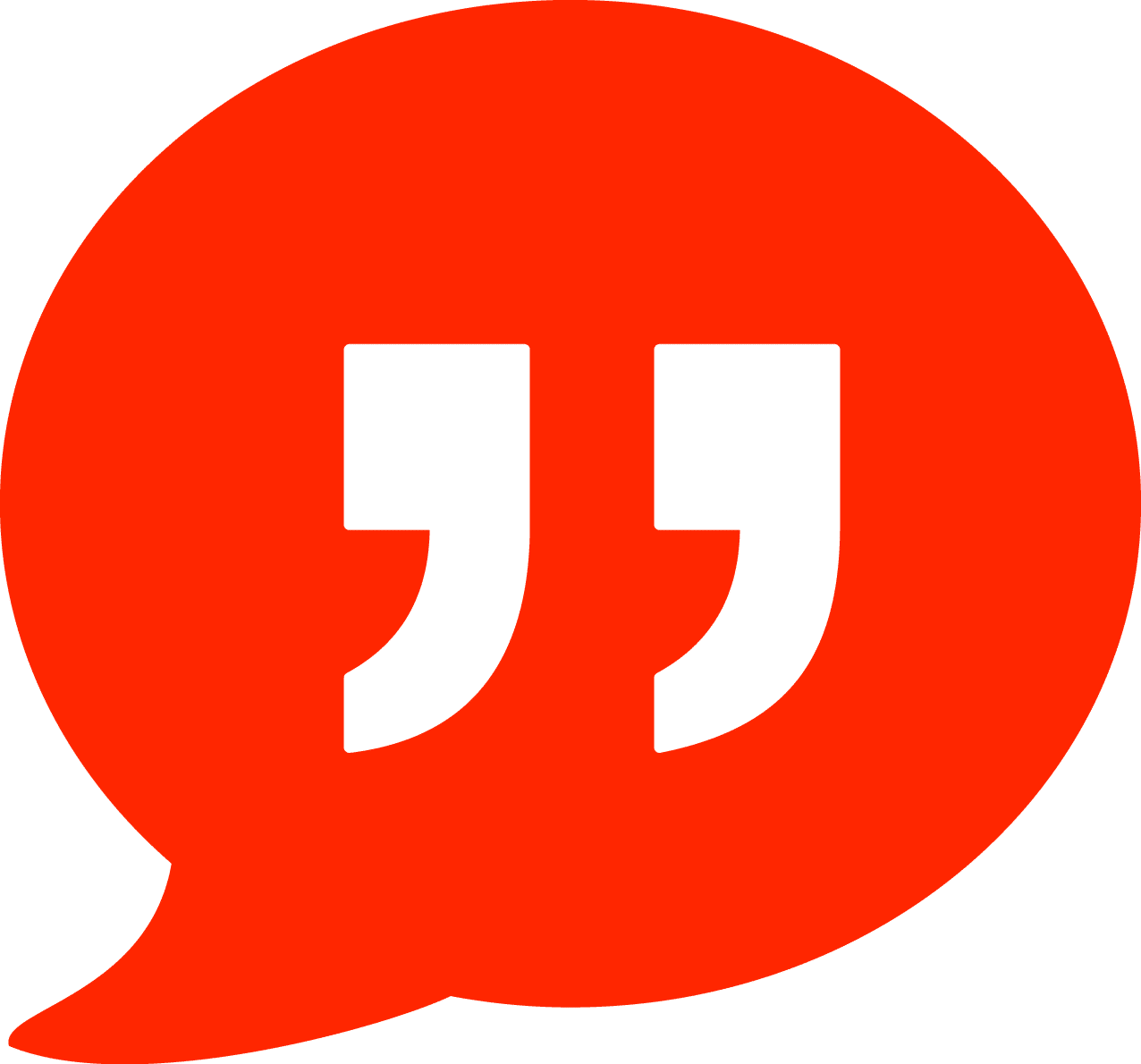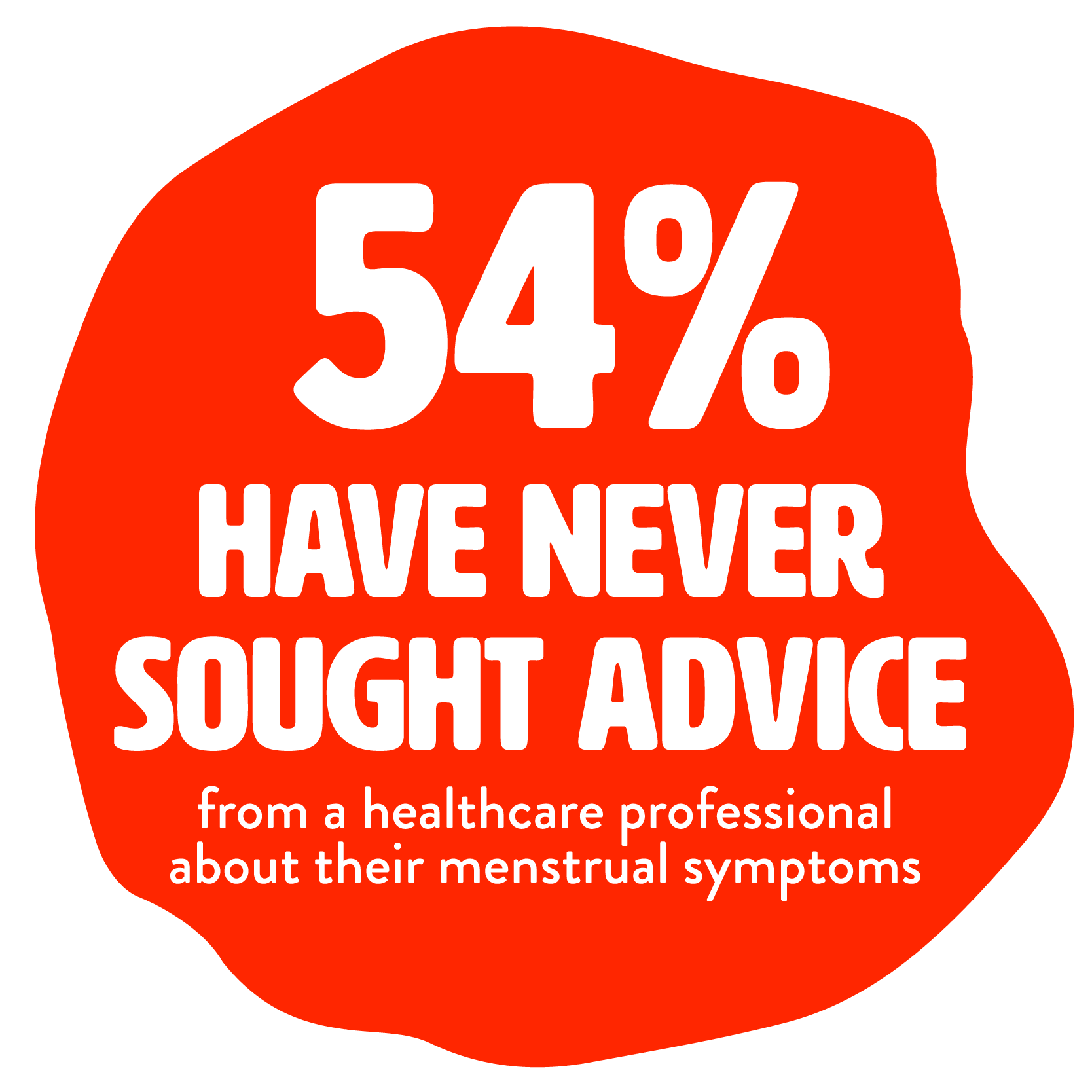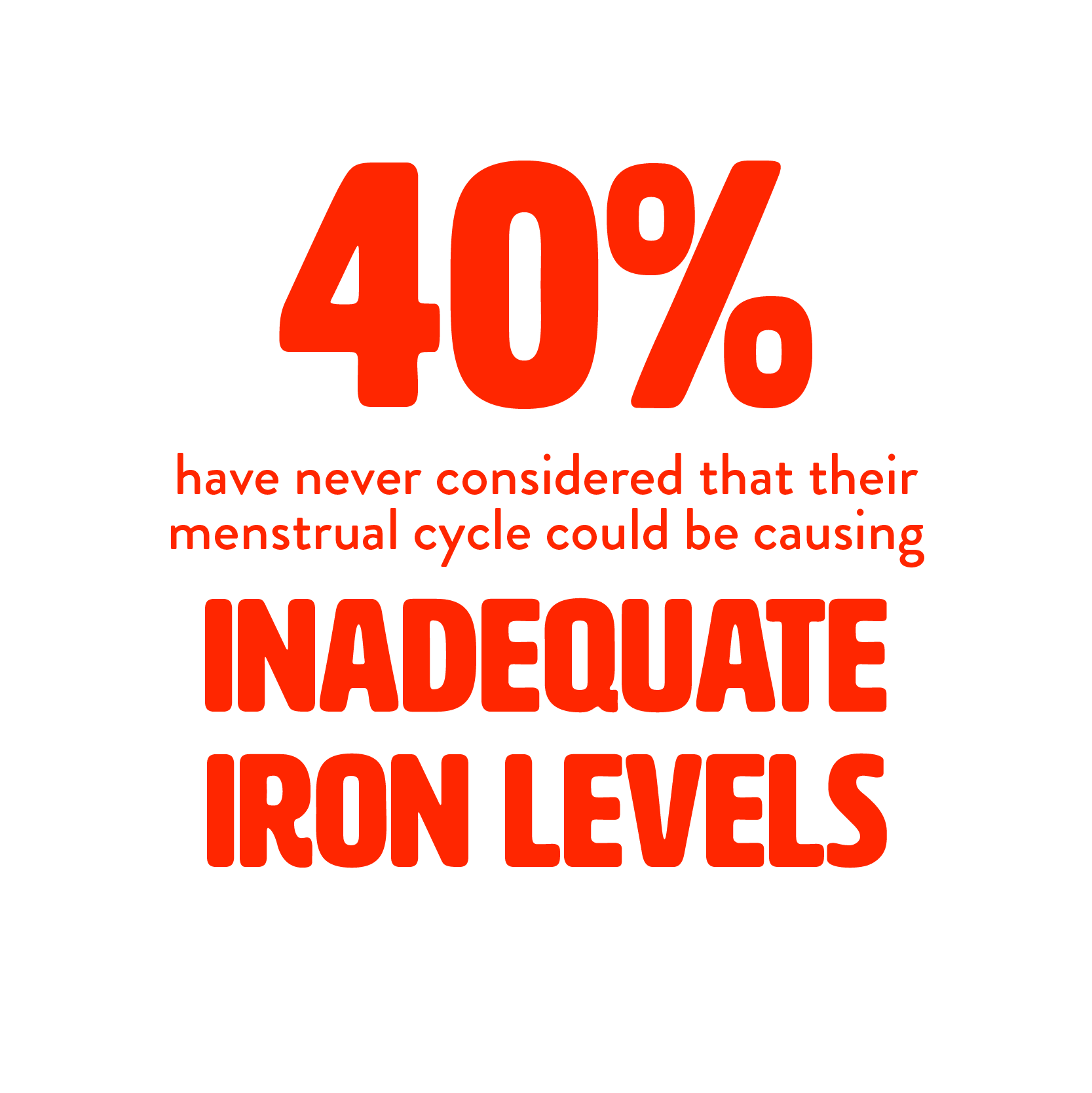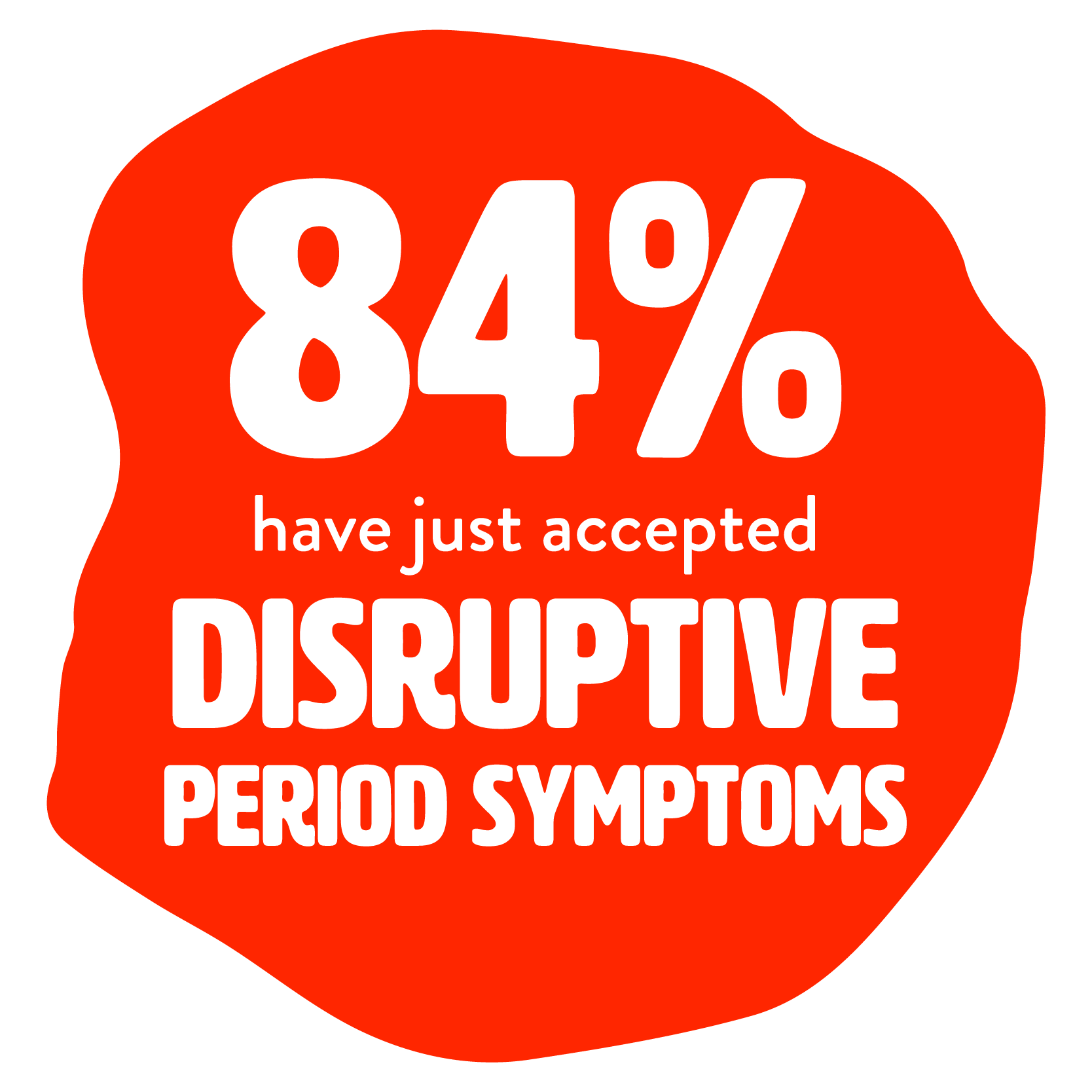Don’t accept menstrual fatigue.
Better Days. Period. is designed to prompt conversations around periods and to change the narrative about symptoms, such as menstrual fatigue, which 64% of menstruating women admit to experiencing.
Periods are a completely natural and normal part of a woman’s life yet for years society has attached a social taboo to menstruation and so the topic has not been discussed openly enough. This includes conversations about the impact of period symptoms on how women feel.
Monthly periods are the most common cause of iron loss worldwide and research shows that women of childbearing age need at least two times more iron than men. It is estimated that 220 to 250mg of iron per pint of blood is lost during menstruation. As a result of monthly periods and iron loss, feeling tired, sluggish and not yourself is the expected norm for many – but it shouldn’t be!
Starting the conversation.
You are currently viewing a placeholder content from Default. To access the actual content, click the button below. Please note that doing so will share data with third-party providers.
More InformationWe brought together a midwife, doctor, and professional rugby player for an honest and frank discussion about periods.
Our Research.
We conducted a survey with 2,400¹ women to understand why women put up with feeling ‘like crap’ during their period.
Interestingly, our research found that two thirds of women (67%) experience heavy periods, meaning they are more likely to suffer with fatigue and tiredness, but more than half (55%) admit they put up with feeling poorly during their menstrual cycle because ‘it is just part of being a woman.’
Furthermore, a third (32%) think ‘there is nothing that can be done to make a difference’ when it comes to symptoms resulting from their period.

Dr Stephanie Ooi

I’m surprised to learn that women are just putting up with symptoms such as tiredness and fatigue each month
especially as over half (51%) admit they have never sought help from a healthcare professional. The average woman will spend a combined total of 10 years menstruating, which means a significant portion of time could be spent feeling less than their best, and this needs to change.

Tiredness and fatigue.
Tiredness and fatigue are the symptoms of menstruation that women are most likely to put up with.
As a result, 44% have stopped physical exercise, 34% have missed a social event, and 18% have required time off work.
Four in ten (39%) say their tiredness lasts longer than four days and 36% find people are generally sympathetic when they feel tired as a result of their period.
The survey showed 41% of women have never considered that their menstrual cycle could be causing inadequate iron levels, leaving them feeling tired and fatigued.


Side effects.
Of those who have considered their iron levels because of their period, 46% have tried an iron supplement.
However, 37% of these people admit that they have stopped taking it because of the side effects, which can include constipation, bloating and nausea.
How Active Iron can help.
Active Iron is clinically proven to increase iron and energy levels whilst being gentle on the stomach². This means it can help reduce feelings of menstrual fatigue throughout your cycle, an issue that affects 64% of women.

